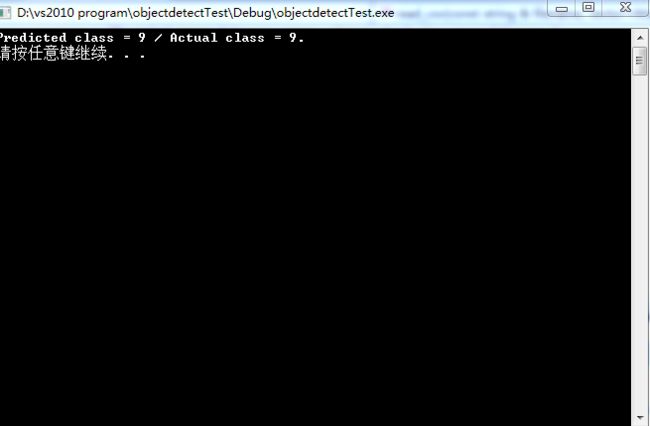用ORL人脸数据库和opencv的facererc_demo.cpp做人脸检测
用OpenCV的\opencv\soruce\samples\cpp\facerrc_demo.cpp文件可以做人脸特征检测的训练和测试。要使用这个程序主要做的工作就是提供一个图像集,ORL,然后再生成图像位置和标签的文件,用于faceerc_demo.cpp的训练和测试,生成的“face_at.txt”文件如下
//util.h
#ifndef __UTIL_H__
#define __UTIL_H__
//获取目录先的文件
void getFiles(std::string path, std::vector<std::string>& files);
//分离字符串
std::string splitString(const std::string& source, const std::string& toc1, const std::string& toc2);
//将图像文件的位置和标签信息写到保存文件里
void writeGraphInfo(const std::string& fileName, std::vector<std::string>& files, const std::string& toc1, const std::string& toc2);
#endif//util.cpp
#include //prep.h
#ifndef __PREP_H__
#define __PREP_H__
#include "opencv2/core/core.hpp"
#include "opencv2/highgui/highgui.hpp"
#include "opencv2/contrib/contrib.hpp"
#include #include "prep.h"
#include "util.h"
using namespace cv;
using namespace std;
static void read_csv(const string& filename, vector model = createEigenFaceRecognizer();
model->train(images, labels);
// The following line predicts the label of a given
// test image:
int predictedLabel = model->predict(testSample);
//
// To get the confidence of a prediction call the model with:
//
// int predictedLabel = -1;
// double confidence = 0.0;
// model->predict(testSample, predictedLabel, confidence);
//
string result_message = format("Predicted class = %d / Actual class = %d.", predictedLabel, testLabel);
cout << result_message << endl;
waitKey(0);
system("pause");
return 0;
} 
